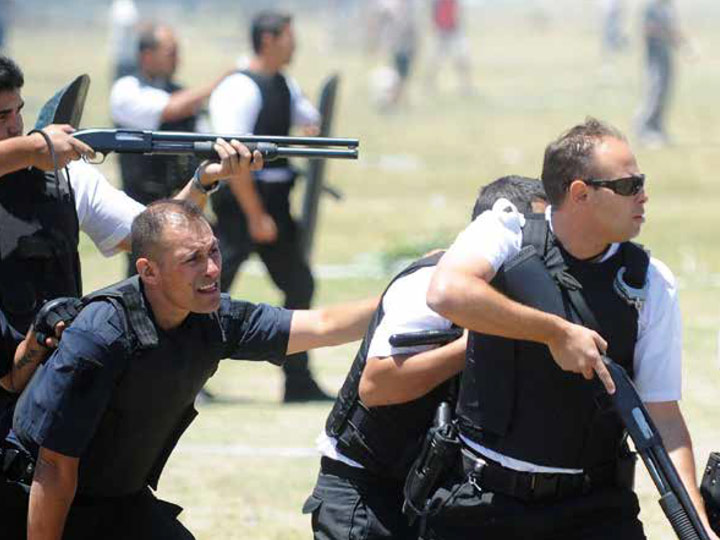Take Back the Streets: Repression and Criminalization of Protest Around the World
These case studies from Argentina, Canada, Egypt, Israel and the Occupied Territories, Kenya, Hungary, South Africa, the United Kingdom and the United States, all present a unique state reaction to their unique domestic context in 2013. Common threads however include excessive use of force resulting in injury and death, discriminatory treatment, criminalization of social leaders, and suppression of democratic rights through law, regulation and bureaucratic processes.
History tells us that many of the fundamental rights we enjoy today were obtained after generations before us engaged in sustained protests in the streets: the prohibition against child labour, steps toward racial equality, and women’s suffrage – to name just a few – were each accomplished with the help of public expression of these demands. If freedom of expression is the grievance system of democracies, the right to protest and peaceful assembly is democracy’s megaphone. It is the tool of the poor and the marginalized – those who do not have ready access to the levers of power and influence, those who need to take to the streets to make their voices heard.
Unfortunately, these are also rights that are frequently violated. Our organizations have witnessed numerous instances of direct state repression during protests: mass arrests, unlawful detentions, illegal use of force, and the deployment of toxic chemicals against protesters and bystanders alike. At other times the state action is less visible: the increased criminalization of protest movements, the denial of march permits, the imposition of administrative hurdles, and the persecution and prosecution of social leaders and protesters.
Download the complete report here.
